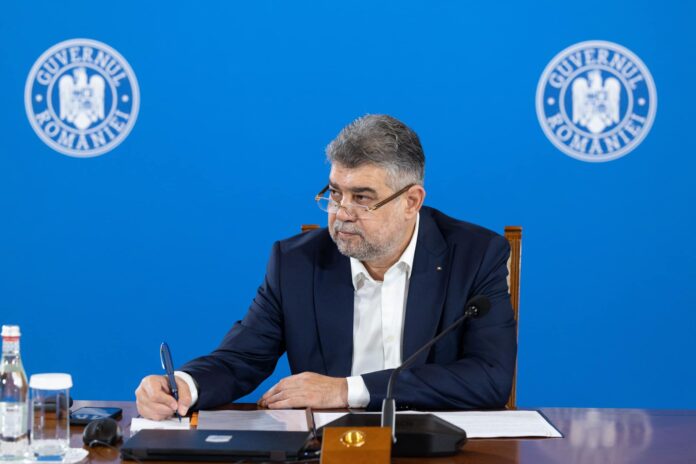Prime Minister Marcel Ciolacu considers that Romania’s government deficit, which is expected to reach 6.9% of GDP, is a sustainable one, given that 84% of this money is aimed at investments.
„It is sustainable, given that 84% of the deficit goes to the investment area. We are the first European state to have a deficit based primarily on investments. So did Germany, so did Italy, so did France. It was not the and of the country. Sustainability comes because we don’t come up with money for consumption. We come with investments. On the other hand, when he was a philosopher prime minister, the deficit was 9.2%, it seems. The investments were at 1.75%, it seems. You can see how much was on consumption. At the moment, the consumption margin is very limited and that is important to maintain,” Ciolacu told a news conference on Friday at the Oradea Prefect’s Office.
Ciolacu said that part of the money allocated for investments will return to the government in the form of taxes.
„Of course, first, the government transfers the money to Mr Grindeanu. Mr Grindeanu gives it to companies. Companies are finishing the motorways that we have been waiting for 30 years and, with a delay of one or two months, taxes are returned to the government. Moreover, infrastructure investments multiply in the economy up to a multiple of 8. You put in one euro, six or eight euros come back, in the area where we have directed a lot of investments at the moment.”.
Much of the investment money, added Ciolacu, comes from revenue growth and co-financing loans.
„For motorways, we have reached a co-financing of 50%, even 60%. We had about RON13.7 billion – without price increases and without the ordinance regulating price differences – and really, from the negotiation of the National Recovery and Resilience Plan (PNRR) they caught only RON 7 billion. We decided not to release any project, because that was right, because it was a uniform development. At this moment, a 50% co-financing is coming. There is money from PNRR, from European funds, but half is from the national budget.”
AGERPRES




